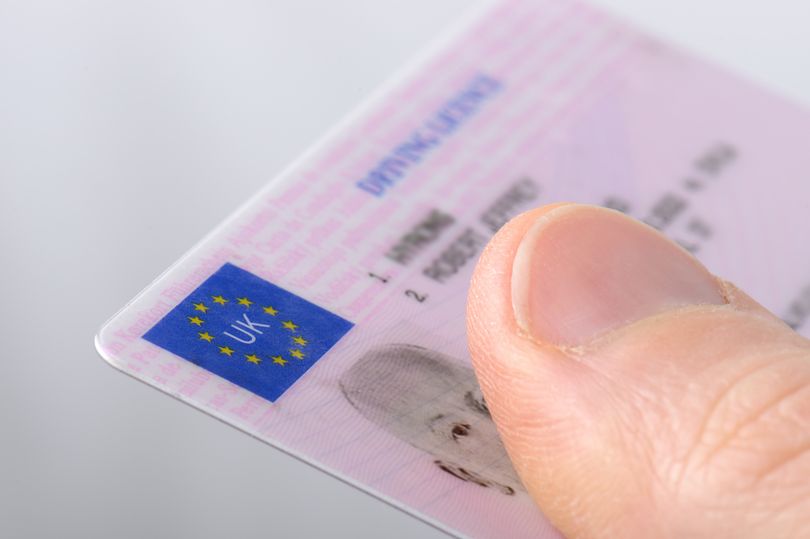
SEVEN IMPORTANT CHANGES DRIVERS MUST TELL DVLA ABOUT OR FACE FINE AND POINTS ON LICENCE
Drivers are being warned they must declare seven specific changes to the DVLA or face fines and points on their licence.
Motorists could even be prosecuted if they fail to disclose relevant changes and subsequently have an accident. Experts at EasyQuote have outlined the consequences of drivers not declaring certain details as the registered vehicle keeper. The DVLA needs to be informed of any significant updates, such as common medical conditions and changes in address or name. The penalties for non-compliance are severe, potentially costing drivers up to £1,000 and adding six points to their licence.
Moreover, failing to update your insurance provider with all necessary information could make your policy invalid reports Chronicle Live.
Disclose driver details or face penalties
Any person registered by the DVLA as the owner of a vehicle implicated in an offence will be charged with failing to disclose driver details if they do not identify the driver at the time of the offence. The penalty for this failure includes receiving six points on the licence and a potential fine of up to £1,000.
Notification of eyesight changes
Drivers are obliged to inform the DVLA if their eyesight deteriorates or if they suffer from visual impairments such as cataracts or glaucoma. According to DVLA rules, drivers must be able to read a number plate from 20 metres, with glasses or contact lenses allowed, but these must be worn at all times while driving.
Unfortunately, failure to meet the minimum eyesight standards could result in a fine of up to £1,000 and three penalty points on your licence if you're caught driving. Moreover, drivers with poor vision can have their licences immediately revoked by the police if they're considered a danger on the road.
Disclosure of medical conditions is crucial
Failure to report a medical condition could lead to a fine of up to £1,000 and drivers involved in accidents risk prosecution. The DVLA has a comprehensive list of over 110 conditions that could affect driving abilities, which some motorists may not be fully aware of.
Common conditions that need to be reported include diabetes, vertigo and sleep apnoea, among others listed on the DVLA website. In severe cases, the DVLA requires that drivers must surrender their licence if they do not meet the necessary driving standards.
Reporting name or gender changes
Drivers who fail to inform the DVLA about a legal change in name or gender could be hit with a £1,000 fine. It's crucial for newlyweds to know that not telling the DVLA is a legal offence, even though the process doesn't cost a penny. To stay on the right side of the law, drivers should send back their old licence along with any necessary documents, ensuring both their driving licence and vehicle registration are updated correctly.
Declaring a vehicle off-road with SORN
Every vehicle must be insured and taxed unless the owner applies for a Statutory Off-Road Notice (SORN) when the car isn't being used. If you're planning to take your car off the road for a while, you need to declare it as SORN to avoid paying unnecessary tax.
Once you've declared your vehicle as SORN, it can't be used and should be kept on private property like a driveway or garage; leaving it on a public road is against the law. If a SORN vehicle is driven for any reason other than going to a pre-booked MOT or testing appointment, the owner could face prosecution and a fine of up to £2,500.
Vehicle modifications
Drivers need to tell the DVLA about significant changes to their vehicle, updating their V5C registration and providing the necessary proof. Changes that need to be reported include alterations to the chassis or body shell, changes to the exhaust system or number plate, or if the vehicle has been wrapped in a different colour.
The DVLA may request an inspection of the vehicle to verify its roadworthiness following these changes. If it is necessary to conduct tests and the vehicle fails, it may be prohibited from being used on the roads until corrective actions are taken. Additionally, owners may face fines or even a court summons if the modifications do not meet regulatory standards.
Updating address changes
It is essential for drivers to inform the DVLA of any address changes, temporary or permanent, to ensure that all correspondence reaches the vehicle owner. Both the vehicle logbook and driving licence need to be current, and address updates can be conveniently made online. Failing to notify the DVLA of an address change can result in a fine of up to £1,000 for the vehicle owner.
2024-05-07T14:47:13Z dg43tfdfdgfd